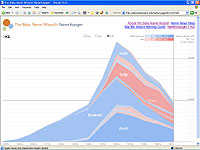Excerpts from Stet by Diana Athill, who was apparently considered the best editor in London during the second half of the twentieth century.
Writing about the first book she was responsible for publishing at André Deutshe:
I would soon begin to find such fantasies a waste of time — of my time, anyway — but then, in addition to liking the sobriety and precision of the style, I felt the pull of mystification: ‘I can’t understand this — probably, being beyond me, it is very special.’ This common response to not seeing the point of something has a rather touching humility, but that doesn’t save it — or so I now believe — from being a betrayal of intelligence which has allowed a good deal of junk to masquerade as art. Whether that matters much is another question: throughout my publishing life I thought it did, so I am glad to say that the publication of The Tailor’s Cake in 1946, beautifully translated by Betty Askwith, was the only occasion on which I succumbed to the charm of mystification.
On her love of books:
I loved that book [The Toe-Rags by Daphne Anderson] even more than I loved Morris Stock’s [Parents Unknown: A Ukrainian Childhood]; and both of them I loved not for being well-written (though both were written well enough for their purposes), but because of what those two people were like. They brought home to me the central reason why books have meant so much to me. It is not because of my pleasure in the art of writing, though that has been very great. It is because they have taken me so far beyond the narrow limits of my own experience and have so greatly enlarged my sense of the complexity of life: of its consuming darkness, and also — thank God — of the light which continues to struggle through.
Much to my surprise Diana Athill writes a lot about Caribbean literature in Stet. Not only are there long chapters on Jean Rhys and V. S. Naipaul, but Athill was also Eric Williams’ editor and travelled to both Dominica and Trinidad & Tobago in the course of her career. In addition, she had an affair with Hakim Jamal, an American disciple of Malcolm X, who was involved in the murders in 1972 that formed the subject of Naipaul’s story The Killings in Trinidad. I found it all quite unexpectedly fascinating and would recommend it, not least because it’s exceptionally well-written.





